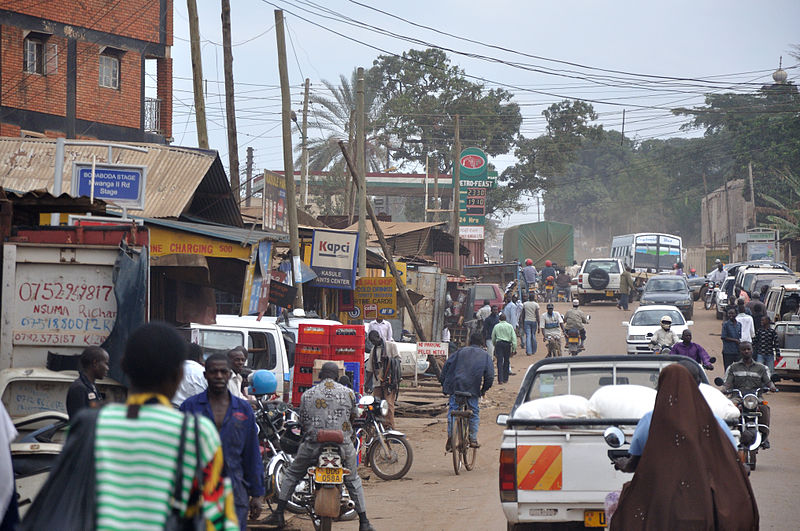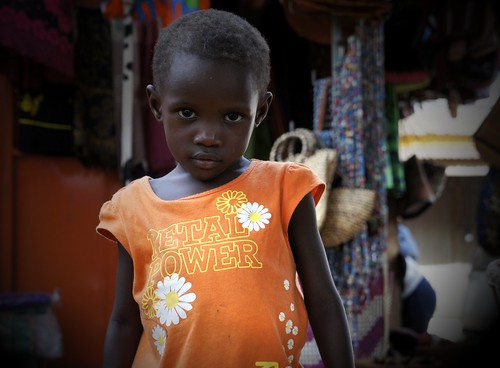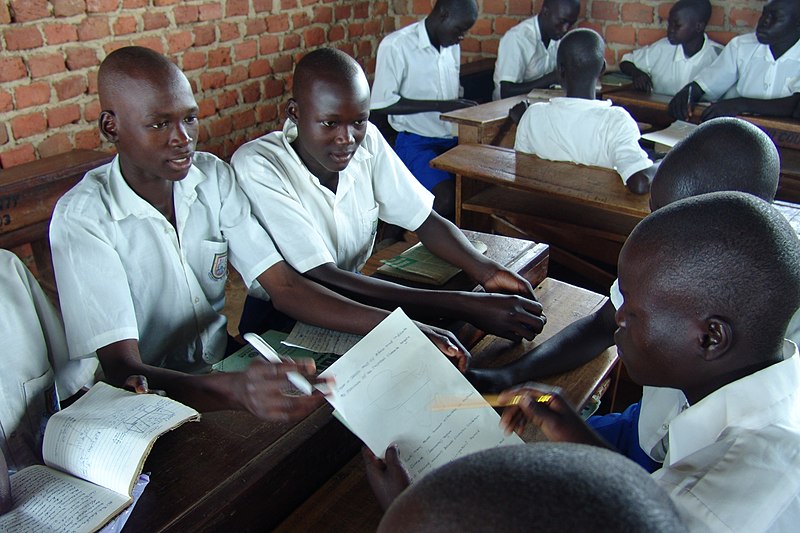Difference between revisions of "Adopting from Uganda"
(→Who Can Adopt) |
(→Who Can Be Adopted) |
||
| Line 100: | Line 100: | ||
=Who Can Be Adopted= | =Who Can Be Adopted= | ||
| + | In addition to U.S. immigration requirements, Uganda has specific requirements that a child must meet in order to be eligible for adoption: | ||
| + | |||
| + | |||
| + | '''[[Relinquishment]]:''' The consent of both biological parents, if known, must be obtained and may be withdrawn prior to the execution of the adoption order. Under U.S. immigration law, if both biological parents for a child are living, they must independently release their child for adoption and emigration abroad, prior to U.S. prospective [[Adoptive Parents|adoptive parents]] being identified. The irrevocable releases must be in writing in English and the biological parents' native language. | ||
| + | |||
| + | '''[[Abandonment]]:''' The police and Probation and Social Welfare Officers have the authority to certify a child as abandoned. | ||
| + | |||
| + | '''Age of Adoptive Child:''' Children who are 14 years old or older must consent to the adoption. [[Adoptive Parents|Adoptive parents]] must be at least 21 years older than the child to be [[adopted]]. Uganda does not have an upper age limit for adoption. | ||
| + | |||
| + | '''Sibling Adoptions:''' Sibling adoptions are possible and do not have any unique requirements. | ||
| + | |||
| + | '''[[Special Needs]] or Medical Conditions:''' None | ||
| + | |||
| + | '''Waiting Period or Foster Care:''' Ugandan law requires [[Adoptive Parents|adoptive parents]] to have been resident in Uganda for at least three years and to have fostered the child for at least 36 months under the supervision of a probation and social welfare officer. High court judges have the discretion to waive these requirements. | ||
| + | |||
| + | |||
| + | '''Caution:''' Prospective [[Adoptive Parents|adoptive parents]] should be aware that not all children in orphanages or children's homes are adoptable. In many countries, including Uganda, birth parents place their child(ren) temporarily in an orphanage or children's home due to financial or other hardship, intending that the child return home when this becomes possible. In such cases, the birth parent(s) have rarely relinquished their [[Parental Rights|parental rights]] or consented to their child(ren)'s adoption. | ||
| + | |||
| + | |||
| + | Additionally, many birth parents agree to intercountry adoption without fully understanding its ramifications. They often believe the child(ren) will return to Uganda and to their birth families at age 18. | ||
=How to Adopt= | =How to Adopt= | ||
Revision as of 17:49, 11 April 2014
Contents
Hague Convention Information
Uganda is not party to the Hague Convention on Protection of Children and Co-operation in Respect of Intercountry Adoption(Hague Adoption Convention). Intercountry adoptions of children from non-Hague countries are processed in accordance with 8 Code of Federal Regulations, Section 204.3 as it relates to orphans as defined under the Immigration and Nationality Act, Section 101(b)(1)(F).
Taking into consideration recent allegations of misconduct in intercountry adoptions in Uganda, the Department of State would like to remind prospective adoptive parents that before an immigrant visa may be issued to an adopted child, a U.S. consular officer must ensure that the adoption is legal under Ugandan law and that the child is qualified under U.S. immigration law to immigrate to the United States.
The Department of State reminds prospective adoptive parents that, in Uganda, consular officers are required by law to conduct an orphan investigation (I-604) to verify the child's orphan status prior to the issuance of an IR-3 or IR-4 immigrant visa. Depending on the circumstances of a case, this investigation may take up to one month. If there are any unresolved questions during this orphan investigation, the consular officer must forward the case to USCIS Nairobi for final adjudication. This will take up to 30 days from USCIS' receipt of the file. Adoptive parents are therefore urged to work with their adoption service provider in the U.S. to confirm the status of their case before traveling to Uganda.
HAT TO EXPECT:
The U.S. Embassy in Kampala receives a high volume of adoption petitions. It is important that prospective adoptive parents have completed all the required tasks and obtained all of the necessary paperwork before scheduling an interview to allow for prompt and efficient service.
Once prospective adoptive parents arrive in Uganda, the legal process can take approximately four to eight weeks, if not longer, depending on how promptly the Ugandan courts act. Ugandan courts expect that the prospective adoptive parent will be present in court. If a prospective adoptive parent is not present, the court may not record the prospective adoptive parent's name on the court ruling and guardianship order. The U.S. Embassy requires that the petitioner's name be on both of these documents, so please plan accordingly. Many people plan on being in country for about two weeks and are disappointed when they realize the process takes much longer.
WORKING WITH U.S. EMBASSY KAMPALA:
The U.S. Embassy in Kampala is here to help with the adoption process, and we ask you to help us maximize our resources.
When you are ready to travel to Uganda for the first time, we ask you to do the following:
- 1. Enroll online with the Smart Traveler Enrollment Program (STEP) at http://step.state.gov.
- 2. Email us at KampalaAdoptions@state.gov to in order to let us know you will be in country to process an adoption. Please include the following information:
- 1. Petitioner's name
- 2. Date of arrival
- 3. Estimated court date
- 4. Child's (beneficiary's) name
- 5. Contact phone number
Starting in the fall of 2013, U.S. Embassy Kampala will hold monthly sessions for prospective adoptive parents to explain the adoption process in Uganda and discuss how you can best work with the U.S. Embassy. These are general overview sessions, and we encourage all in-country families to attend, regardless of where you are in the adoption process. Email KampalaAdoptions@state.gov to RSVP for the next session.
Please understand that we cannot intervene with any Ugandan legal processes, to include the court process and obtaining civil documents such as birth certificates and passports. We are also unable to assist you with filling out required paperwork for the I-600 petition filing and immigrant visa application processes.
U.S. IMMIGRATION REQUIREMENTS FOR INTERCOUNTRY ADOPTIONS
To bring an adopted child to the United States from Uganda, you must meet eligibility and suitability requirements. The U.S. Department of Homeland Security, U.S. Citizenship and Immigration Services (USCIS) determines who can adopt under U.S. immigration law.
Additionally, a child must meet the definition of orphan under U.S. immigration law in order to be eligible to immigrate to the United States on an IR-3 or IR-4 immigrant visa.
Who Can Adopt
Ugandan law places restrictions on the ability of foreign citizens to adopt Ugandan children. The Children's Act states that a foreign citizen may, in exceptional circumstances, adopt a Ugandan child if the foreigner has resided in Uganda for at least three years and if the foreigner has also fostered the child for 36 months. However, recently High Court judges have made some exceptions to these three-year residency and fostering requirements on a case-by-case basis if it was deemed to be the best interest of the child. It is unclear whether this is a permanent change in the interpretation of the law.
Ugandan High Court judges have also exercised discretion in approving legal guardianship decrees (which may permit the child to emigrate for full and final adoption abroad) in certain cases where the prospective adoptive parents were unable to meet the requirements for adoption in Uganda.
In addition to U.S. immigration requirements, you must also meet the following requirements in order to adopt a child from Uganda:
Residency
Unless a judge waives the fostering requirements, prospective adoptive parents must reside in Uganda with their prospective adoptive child for three years. This means that a foreign citizen may adopt a Ugandan child if the foreigner has resided in Uganda for at least three years, and has also fostered the child for 36 months.
Age of Adopting Parents
Applicants must be at least 25 years old and 21 years older than the child they plan to adopt. In the case of a married couple, it is sufficient for one spouse to meet these requirements.
Marriage
Married couples must adopt jointly. Single parents may adopt, but they may not adopt a child of the opposite sex (unless an exception is made). While Uganda does not specifically prohibit adoption by LGBT individuals or couples, political and cultural perspectives in Uganda may mean that same-sex couples may not be approved for adoption by Ugandan courts. Single gay and lesbian applicants may face additional scrutiny or not be approved if the courts become aware of their sexual orientation.
Income
There are no specific income requirements for Ugandan adoption, although prospective adoptive parents must be able to prove financial stability.
Other
Foreign adoptive parents must demonstrate they have no criminal record, and that they have been approved by their country of nationality to adopt.
Who Can Be Adopted
In addition to U.S. immigration requirements, Uganda has specific requirements that a child must meet in order to be eligible for adoption:
Relinquishment: The consent of both biological parents, if known, must be obtained and may be withdrawn prior to the execution of the adoption order. Under U.S. immigration law, if both biological parents for a child are living, they must independently release their child for adoption and emigration abroad, prior to U.S. prospective adoptive parents being identified. The irrevocable releases must be in writing in English and the biological parents' native language.
Abandonment: The police and Probation and Social Welfare Officers have the authority to certify a child as abandoned.
Age of Adoptive Child: Children who are 14 years old or older must consent to the adoption. Adoptive parents must be at least 21 years older than the child to be adopted. Uganda does not have an upper age limit for adoption.
Sibling Adoptions: Sibling adoptions are possible and do not have any unique requirements.
Special Needs or Medical Conditions: None
Waiting Period or Foster Care: Ugandan law requires adoptive parents to have been resident in Uganda for at least three years and to have fostered the child for at least 36 months under the supervision of a probation and social welfare officer. High court judges have the discretion to waive these requirements.
Caution: Prospective adoptive parents should be aware that not all children in orphanages or children's homes are adoptable. In many countries, including Uganda, birth parents place their child(ren) temporarily in an orphanage or children's home due to financial or other hardship, intending that the child return home when this becomes possible. In such cases, the birth parent(s) have rarely relinquished their parental rights or consented to their child(ren)'s adoption.
Additionally, many birth parents agree to intercountry adoption without fully understanding its ramifications. They often believe the child(ren) will return to Uganda and to their birth families at age 18.
How to Adopt
Adoption Authority
The Process
Traveling Abroad
Applying for Your U.S. Passport
A valid U.S. passport is required to enter and leave Uganda. Only the U.S. Department of State has the authority to grant, issue, or verify U.S. passports. Getting or renewing a passport is easy. The Passport Application Wizard will help you determine which passport form you need, help you to complete the form online, estimate your payment, and generate the form for you to print-all in one place.
Obtaining Your Visa
In addition to a U.S. passport, you also need to obtain a visa. A visa is an official document issued by a foreign country that formally allows you to visit. Where required, visas are attached to your passport and allow you to enter a foreign nation. To find information about obtaining a visa for Uganda, see the Department of State's Country Specific Information.
Staying Safe on Your Trip
Before you travel, it's always a good practice to investigate the local conditions, laws, political landscape, and culture of the country. The State Department is a good place to start. The Department of State provides Country Specific Information for every country of the world about various issues, including the health conditions, crime, unusual currency or entry requirements, and any areas of instability.
Staying in Touch on Your Trip
When traveling during the adoption process, we encourage you to register your trip with the Department of State. Travel registration makes it possible to contact you if necessary. Whether there's a family emergency in the United States, or a crisis in Uganda, registration assists the U.S. Embassy or Consulate in reaching you. Registration is free and can be done online.
After Adoption
What resources are available to assist families after the adoption?
Many adoptive parents find it important to find support after the adoption. Take advantage of all the resources available to your family -- whether it's another adoptive family, a support group, an advocacy organization, or your religious or community services.
Here are some good places to start your support group search:
Child Welfare Information Gateway
North American Council on Adoptable Children
Adoption Services Support Group for Adopting Persons
SOURCE
Intercountry Adoption, Bureau of Consular Affairs. U.S. Department of State Country Information









